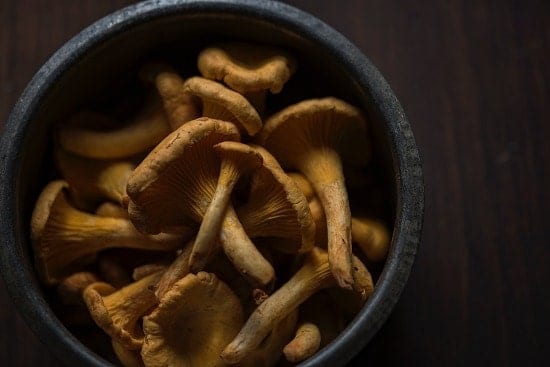Brazil’s President Lula recognizes six Indigenous lands
Brazil’s President Luiz Inácio Lula da Silva has officially recognized six Indigenous lands across the South American country. The six newly-protected territories are home to roughly 4,000 Indigenous people and cover more than 1.5 million acres across the Amazon, Cerrado, Caatinga, and Atlantic Forest regions.
Brazil has more than 700 Indigenous territories. Now, nearly 500 have been officially recognized and protected by the state. These legal protections, known as demarcations, help guarantee Indigenous people rights to their ancestral lands and prevent government agencies and private companies from using those lands for mining, dams, road building, and other destructive practices.
While the number of demarcations completed in recent weeks is lower than many had hoped, they signal the renewal of a process that had completely stalled since 2018. Lula has assured Indigenous rights advocates that more demarcations are underway and that he will protect as many Indigenous lands as he possibly can during his time in office, a stark contrast to his predecessors.
World Health Organization ends global health emergency declaration for COVID-19
Nearly seven million deaths from COVID-19 have been reported to WHO, However, for more than a year the pandemic has been on a downward trend, allowing many around the world to largely return to relatively normality.
New York passes U.S.’s first statewide ban on gas in new buildings
Starting in 2026, new buildings under seven stories won’t be allowed to include stoves, furnaces or water heaters that burn gas and other fossil fuels. Larger buildings are required to comply starting in 2029.
Sweden to build world’s first permanent e-road by 2035
The first of its kind in the world, the e-motorway that charges EVs while they drive may lead to an expansion of a further 3,000 km of electric roads in Sweden by 2045.
Japan approves first abortion pill
Japanese activists have been pushing for years for approval of the pills, with similar medications made available decades ago in other countries as Japan lagged ever further behind.
Mexico approves mining reforms to protect environment, Indigenous people
Under the new reform, Indigenous communities will receive 5% of a mining operation’s profits. Concessions will no longer be granted in areas with water shortages or in protected areas.
Washington state becomes 10th U.S. state to ban assault weapons sales
The ban applies to all semiautomatic rifles less than 30 inches in length, as well as other semiautomatic firearms with features such as thumbhole stocks and additional hand grips.
India aims to turn 90 airports carbon-neutral by 2024
Cochin International Airport has already been deemed the first ‘green airport’ in the world, for which it was awarded the ‘Champions of Earth’ award in 2018, the United Nation’s highest environmental honor.
Pope Francis gives women right to vote in bishops’ meeting for first time
Francis approved changes to the norms governing the Synod of Bishops, a Vatican body that gathers the world’s bishops together for periodic meetings, following decades of demands by women to have the right to vote.
Maryland passes bill protecting gender-affirming care access for trans people on Medicaid
“While other states are dead set on ripping away reproductive rights and attempting to erase the existence of trans and nonbinary individuals, we’re doing the opposite: We’re making Maryland a state that is welcoming, inclusive, and that safeguards the rights of all people.”
Cândido Rondon founds Brazil’s Serviço de Proteção aos Índios (SPI) (1910 C.E.)
SPI – today known as the FUNAI, or Fundação Nacional do Índio, National Foundation for Indians – was the first federal agency in Brazil charged with protecting Indigenous peoples and preserving their culture.
Brazil officially recognizes and protects all Indigenous territories (2032 C.E. ???)
After years of effort by advocates, the Brazil government legally protects all of the country’s Indigenous lands in a major victory for both Indigenous rights and climate action.
These milestones – past, present & future – have been added to:
Archive of Human Genius
80% yes
When making a big decision, it’s natural to want to be completely confident and sure before you take that leap forward. You want to get to 100% yes.
The problem is: For many of us, 100% yes is rare if not possible. No matter how hard we think it through, get advice, and do the research, there are still parts of us that doubt, that worry, that just don’t know.
And so we get stuck. We wait and wait and wait to feel certain, maybe for years, maybe our whole lives.
I like to use the 80% yes principle. If I can get to 80% sure about a decision and can sustain that over an extended period of time, then I just make the call.
The truth is: I didn’t feel 100% about marriage. I didn’t feel 100% about having kids. I didn’t feel 100% about becoming a coach. And yet, these are the most important, most meaningful, and the best decisions I’ve ever made.
Where in your life have you been waiting for 100% yes? Are you willing to let 80% yes be enough so you can move forward with your life?
Peter Schulte
Purpose & Leadership Coach
Founder & Executive Director, Spark of Genius
Bellingham, WA USA / Lummi & Nooksack lands
he/they
Subscribe
Our newsletter featuring good news from around the world
The latest laws, policies, science, and technology leading the way toward our brighter future



